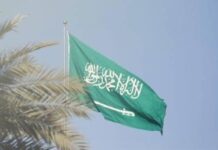By Imam Murtadha Gusau
Monday Ramadan 17, 1443 AH (18/04/2022)I
In The Name Of Allah, The Most Gracious, The Most Merciful
All praise is due to Allah, the Lord of all creation—may He extol the Messenger in the highest company of Angels and send His peace and blessings upon him—likewise upon his family, Companions, and true followers.
Abdullah Ibn Abbas, may Allah be pleased with him, narrated that:
“When the Prophet (Peace be upon him) returned after performing Hajj (major pilgrimage), he asked Ummu Sinan Al-Ansariyyah, ‘Why did you not perform Hajj?’ She replied, ‘The father of so-and-so [i.e., her husband] had two camels and he went on pilgrimage on one of them, and the second is used for the irrigation of our land.’ The Prophet said [to her]: ‘An Umrah (minor pilgrimage) in Ramadan is akin to Hajj with me [in terms of reward].’” [Al-Bukhari and Muslim]
According to another narration, he told her:
“When Ramadan comes, do Umrah as [the reward for] it then is equivalent to Hajj.”
The above quoted narrations is indeed accepted as authentic by the absolute majority of the scholars and jurists (Fuqaha) in Islam.
Likewise, it was reported by Ummu Ma‘aqil, may Allah be pleased with her, that the Prophet (Peace be upon him) said to her:
“Perform Umrah in Ramadan, as it is equal to Hajj.” [Abu Dawud]
Similar Hadiths were also narrated on the authority of Jabir, Anas, Abu Hurairah and Wahb Ibn Khanbash, may Allah be pleased with them all.
Imam Ibn Battal commented on the aforementioned Hadiths, saying:
“The sentence that Umrah “then is equivalent to Hajj”, proves that the Prophet (Peace be upon him) was actually encouraging her to perform a voluntary Hajj (Umrah), as the whole Ummah (Muslim nation) has unanimously agreed that the Umrah can never be a substitute for the obligatory Hajj. Moreover, what he meant is that they are like each other in reward, but virtues cannot truly be perceived through analogy; and Allah The Almighty bestows His Bounty upon whom He Wills.”
Benefits and rulings derived from these Hadiths:
1. The mercy and bounty bestowed by Allah The Almighty upon His servants is great, as He granted them huge rewards in return for small good deeds; so, we praise Him abundantly for that.
2. The Prophet (Peace be upon him) was keen on ensuring the welfare of his Ummah and would ask after those under his rule. Just as he was the sincerest confidant to all people, any servant whom Allah The Almighty puts in charge of subjects should treat them leniently, advise them, check on their conditions and serve their worldly and religious benefits.
3. Umrah done during the month of Ramadan cannot be a substitute for the obligatory Hajj, i.e., they are equal in reward, but the former does not replace the latter as a fulfillment of the obligation that is unanimously agreed upon by the scholars.
Read Also: Two Umrah pilgrims smuggle 141,831 illicit drugs into Saudi
4. The reward of good deeds increases in proportion to the virtue of the time they are performed in, as well as one’s heartfelt devotion and dedication.
5. This Hadith is similar to the narration that says:
“The Chapter Al-Ikhlas is equals to one third of the Qur’an.”
It indicates that it is equivalent in terms of the reward of recitation, not that reciting it could, or should, substitute actually reciting [that much or] the whole of the Qur’an.
6. The Umrah here is considered equal to the Hajj in reward, when it is performed during the month of Ramadan, which is a great season for good deeds. Hence, whoever performs it then, enjoys the virtue of the place [i.e., the Sacred Mosque in Makkah] and time [i.e., Ramadan]; this is also the case with one who performs Hajj, as he is also in the same noble place and in a blessed time [i.e., months of Hajj].
In addition, doing Umrah in the month of Ramadan is more difficult. That is because one may be fasting while performing it or break his fast due to the traveling involved, and then have to make up for it. This is not the case when one performs Umrah during any other month. The Prophet (Peace be upon him) said to Aisha may Allah be pleased with her, once, when he ordered her to perform Umrah:
“It [i.e., its reward] is according to your effort.”
Or, as per another narration:
“According to your expenditure.” [Muslim]
7. This great reward is granted to whoever performs the Umrah during the month of Ramadan, even if he [or she] returns immediately thereafter and does not prolong his [or her] stay in Makkah.
8. These Hadiths do not mean that it is recommended for one to perform Umrah many times in the month of Ramadan or in a single day of it. This practice, which has become common today, differs from the Sunnah and traditions of the honourable Companions, may Allah be pleased with them, as it was not reported that any of them used to perform many Umrahs during the same journey to Makkah.
9. Whoever performs Umrah in Ramadan and intends to stay at the Noble Mosque during the whole month or its last ten nights, should guard himself against committing any prohibition, because evil deeds are more sacrilegious in Makkah than in any other place, not to mention, during the month of Ramadan.
10. Whoever takes his family to stay at the Noble Mosque during the month of Ramadan, should take care that they, too, do not fall into committing any forbidden act; otherwise, he may return with sins that exceed the reward he came to earn, due to his negligence towards his wife and children.
11. If one entered the state of Ihram (ritual consecration) with the intention of performing Umrah and reached Makkah while fasting, he has the choice of either breaking his fast to be able to do it immediately or waiting to do it until after sunset. It is better for him to break his fast during the daytime and perform Umrah upon arrival, since doing Umrah right after reaching Makkah, is what the Prophet (Peace be upon him) did.
Allah, The Almighty, urged His servants to race to do good deeds, which may bring them closer to Him in an attempt to gain His reward and forgiveness. This is indicated by the verses:
“So race to [all that is] good. To Allah is your return all together.” [Qur’an, 5:48]
“And hasten to forgiveness from your Lord.” [Qur’an, 3:133]
And among the greatest arenas for this race is visiting Al-Bait Al-Haram (Sacred House in Makkah) to perform Umrah (Minor Pilgrimage), owing to the great reward and the expiation of sins involved in doing that. The Prophet (Peace be upon him) said:
“Performing two Umrahs expiates the sins committed in the interval between them.” [Al-Bukhari and Muslim]
And he (Peace be upon him) said:
“Alternate between Hajj and Umrah, for they exterminate poverty and sins as the (blacksmith’s) bellows removes impurities from iron, gold and silver.” [Ahmad and others]
The Umrah that is performed in Ramadan has a special merit over that which is performed in any other month. There are narrations encouraging Muslims to perform it in this month (Ramadan), showing its merit and reward and clarifying that it incurs a reward equal to that of performing Hajj.
This was the practice of the righteous predecessors (As-Salafus Salih) who used to perform Umrah in the month of Ramadan. It was authentically reported that:
“Sa’id Ibn Jubair and Mujahid used to perform Umrah in the month of Ramadan (and observe Ihram for it) from Al-Ji‘irranah (a place 10 miles from Makkah). It was also narrated that Abdul-Malik Ibn Abu Sulaiman said that he and Ata’ set out in Ramadan (to perform Umrah) and observed Ihram from Al-Ji‘irranah.”
This discloses the secret behind the Muslim’s race towards the Sacred House to do this act of worship in the month of Ramadan. With that great scene, one feels as if in a major season of Hajj.
Lastly, I urge all of you to remember the whole Ummah in your precious Du’as, especially in this blessed month of Ramadan.
Allah knows best and he is the Lords of the universe and May His peace and blessing be on His Messenger, his family, his companions and those who follow them.
I ask Allah, the Most High to grant us success and enable us to be correct in what we say and write, ameen.
Murtadha Muhammad Gusau is the Chief Imam of Nagazi-Uvete Jumu’ah and the late Alhaji Abdur-Rahman Okene’s Mosques, Okene, Kogi State, Nigeria. He can be reached via: gusauimam@gmail.com or +2348038289761.






















